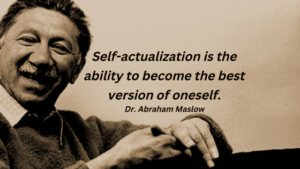Your job may be a significant source of stress and anxiety. Many people, veterans and civilians alike, will tell you that dealing with co-workers and supervisors is a top stressor at work. They often wish they could be left alone to do their job without the workplace drama, arguments, passive-aggressiveness, and what feels like constant conflict.
Below we will discuss several strategies you can use to manage work-related stress stemming from your interactions with co-workers and supervisors so you can navigate challenges of a civilian workplace more successfully.
Manage your expectations by understanding the workplace culture.
One of the biggest sources of stress for Veterans entering the civilian workforce is managing their expectations in terms of how things will run on the job. It’s important to accept that civilian workplaces are going to operate differently from the military. Going into your job every day with this fact in mind will help prepare you for the inevitable issues and conflicts that come up with the people you work with. Being prepared ahead of time will mean less stress on you because you’ll be ready to respond appropriately to conflict rather than react to it.
Try to identify the expectations and overall culture of the workplace. You can do this with a new job, but you can also apply this strategy to a job you’ve had for months or years. It’s never too late.
Consider factors like everyone’s roles and responsibilities, the hierarchy of the company, how deadlines are managed, and how everyone communicates. Adapting yourself to these norms will mean less conflict with those you work with. This doesn’t mean you have to completely mold your personality and behaviors to the job. You can still be true to yourself while also understanding that every workplace has a unique way of operating.
Patience and flexibility are key.
If you find that you tend to be a person who is “stuck in your ways,” you may find that this can work against you when dealing with others in the workplace. The reality is that Veterans should be prepared to encounter roadblocks such as a supervisor who insists you do things “their way” or co-workers who try to tell you what to do even if they have no authority to do so.
It’s important to remain flexible and open-minded—and, as difficult as it may be, leave your pride at the door—while also communicating your thoughts calmly and assertively when you disagree. Being flexible and open to new ways of doing things doesn’t mean you have to be a doormat and have no opinion. It simply means that you understand the importance of listening to others and trying to understand different perspectives. It means you understand the importance of keeping your cool regardless of how others respond to you. If someone tests your patience, remember to stay focused on your long-term goals and don’t engage in interactions that will bring you down. Seek the help of someone else to mediate or go to a supervisor.
Make sure to communicate what you want—clearly and effectively.
Communication is critical in any workplace. If you’re like many Veterans, you may find that your communication style needs to adapt to a civilian environment. It is important to listen actively, ask questions, and clarify your expectations. Veterans should also practice expressing their ideas and opinions clearly and respectfully and seek feedback from their co-workers and/or supervisor.
Establish ways to de-stress.
It’s important to be involved in some type of activity you enjoy after work, even if it’s for only 30 minutes every evening when you get home. Examples include exercise or participating in a hobby you enjoy. Aim for healthy, stress-reducing activities that don’t involve things like TV, social media, or winding down with alcohol.
Many Veterans can also benefit from taking breaks throughout the work day to clear their minds and refocus their energy. You’re entitled to breaks during your workday, but if you notice that this isn’t common practice in your particular job, talk to your supervisor and let them know that taking breaks is important to you because it will enhance your performance. Ultimately, supervisors want quality work, so if that means a few 15-minute breaks throughout the day, it is time well spent.
Make use of the resources available to you.
There are many resources available for Veterans to help them manage stress in the workplace. For example, employee assistance programs (EAPs), counseling services, and career development programs are a few helpful tools. Veterans should take advantage of these resources as needed and seek out support when they feel overwhelmed or stressed.
Find Meaning in Work
Finally, it is important for Veterans to find meaning and purpose in their work. If you find that your job doesn’t excite or inspire you—at all—start by identifying your personal values and goals so you can seek out opportunities that align with these values. Many Veterans find that they are most fulfilled when they can work in an industry or field that relates to their military experience or that allows them to give back to their community.
Additional Resources:
FaithSMagnet Mental TAP Program “Be The Best Version Of You” Helping Veterans And Their Families With A New Powerful Way To Heal Invisible Wounds Infinitely Faster And Grow Your Career Limitlessly.



